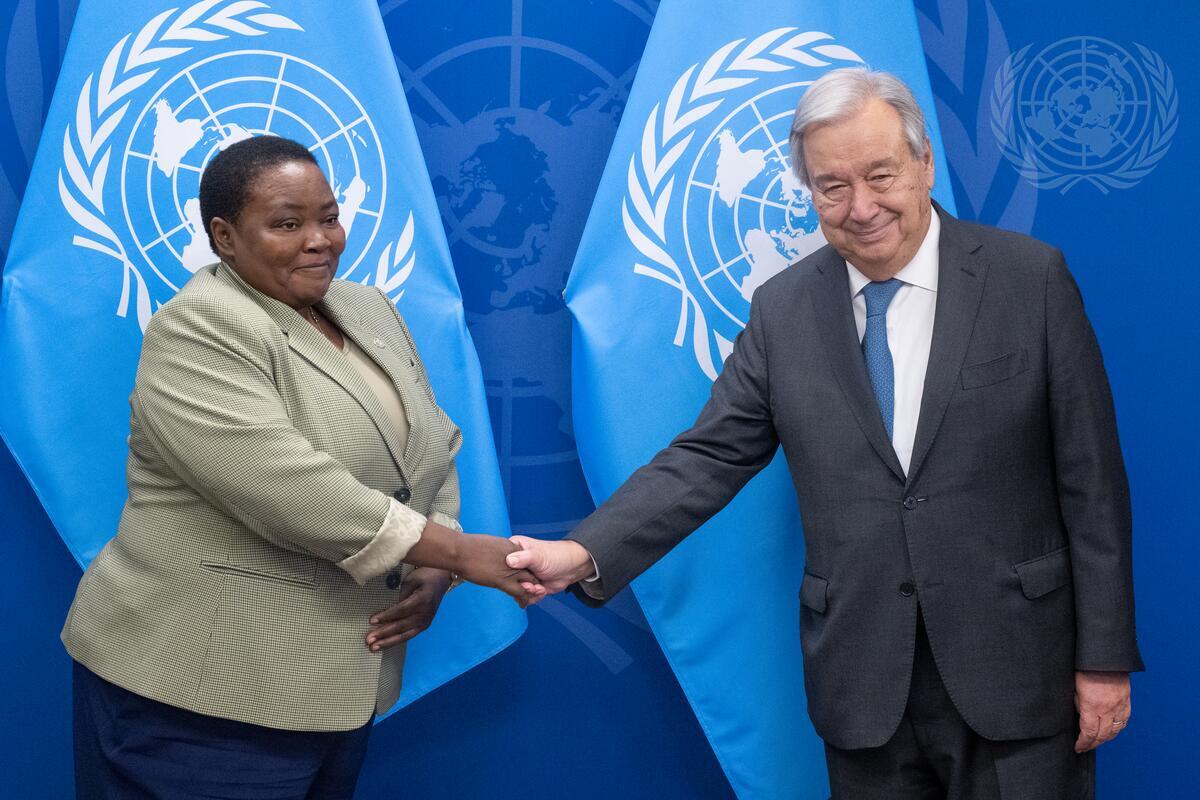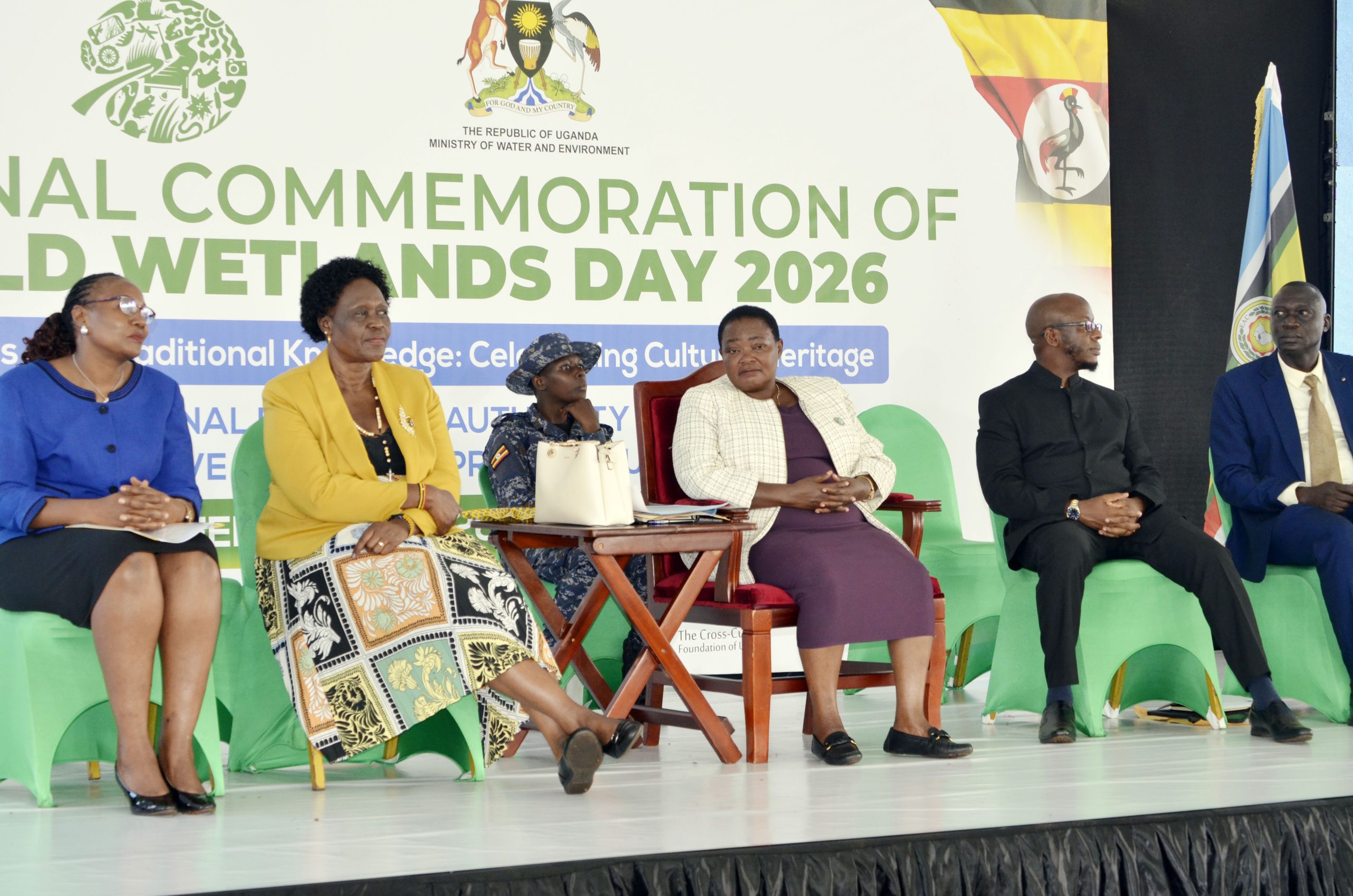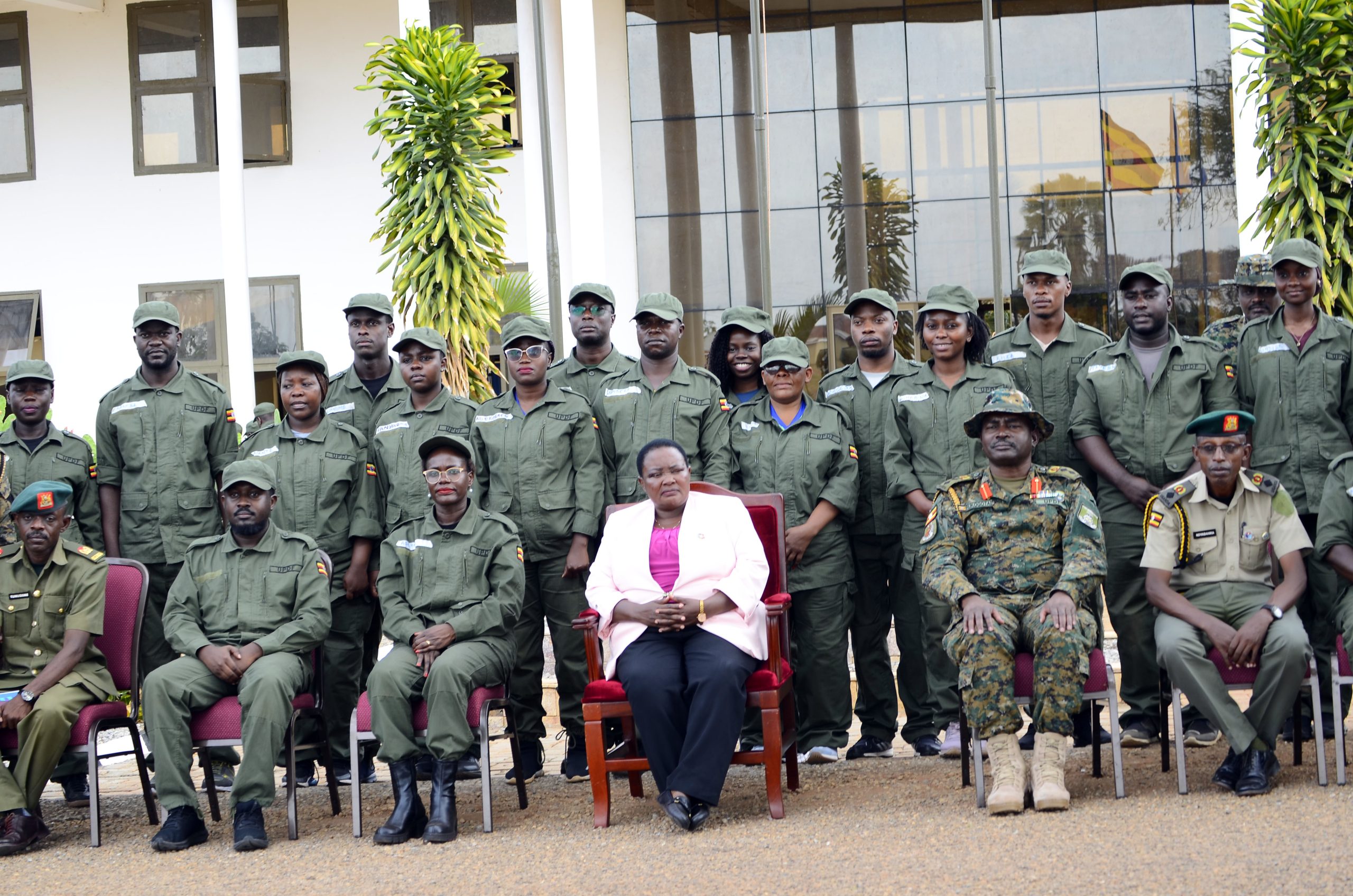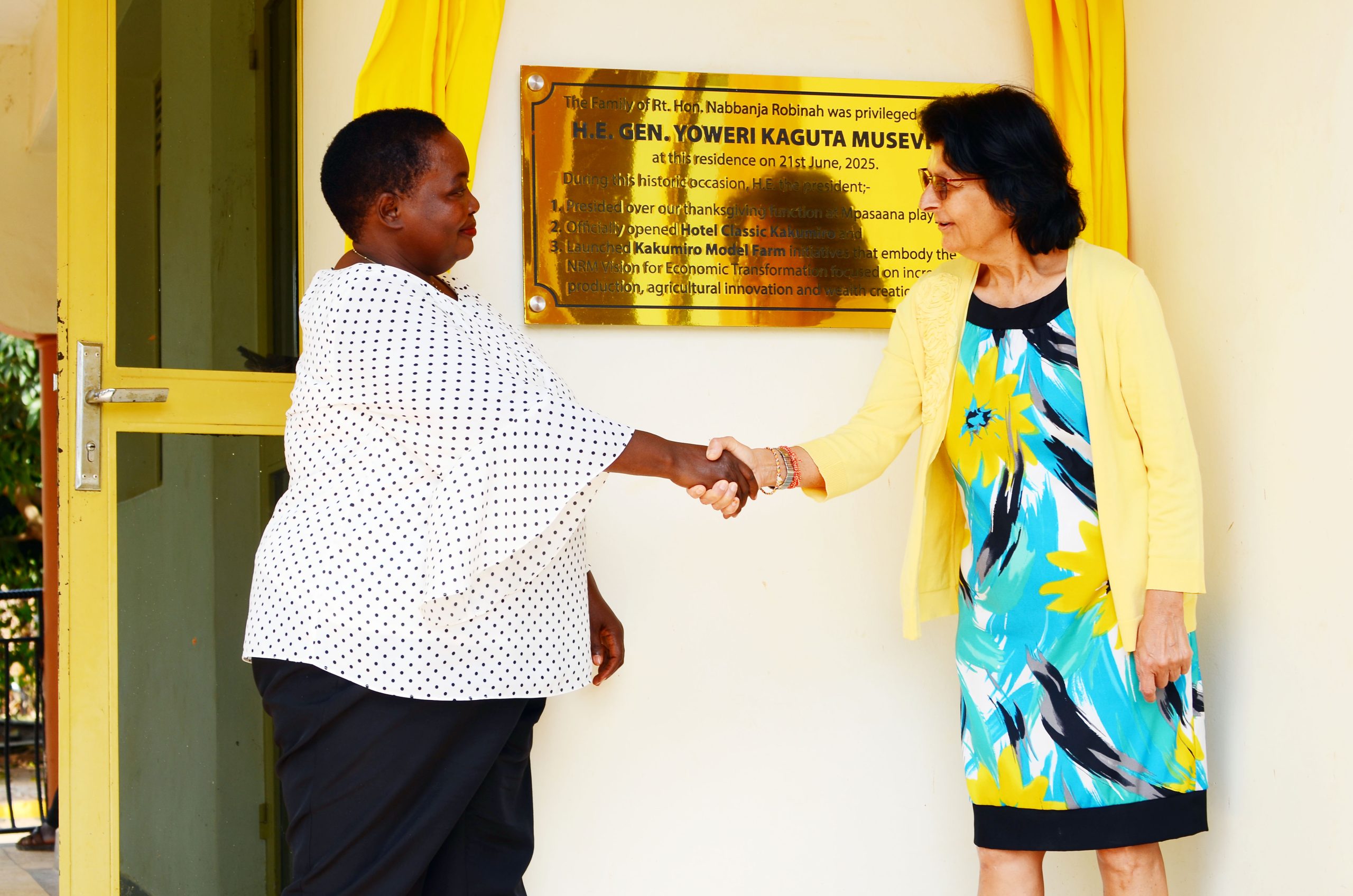By: Ismael Kasooha
NEW YORK
Uganda, as the chair of the G77+China and the Non Aligned Movement (NAM), wants Africa to have two permanent seats on the UN Security council.
President Yoweri Museveni asked the United Nations General Assembly (UNGA) to swiftly consider having African countries as permanent members on the United Nations Security council with Veto powers.
The UN Security Council is composed of 15 Members with five permanent members that include China, France, Russian Federation, the United Kingdom, and the United States and ten non-permanent members elected for two-year terms by the General Assembly (with end of term year).
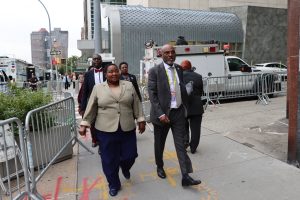
The Prime Minister Robinah Nabbanja (left) with Ambasador Adonia Ayebare, the Permanent Representative of Uganda at the United Nations as they walked to the UN Headquarters to deliver the statement
This was contained in the President’s message at the 79th United Nations General Assembly (UNGA) in New York delivered by the Prime Minister Robinah Nabbanja.
More than 50 United Nations Member States have never been Members of the Security Council.
A State which is a Member of the United Nations but not of the Security Council may participate, without a vote, in its discussions when the Council considers that country’s interests are affected.
Both Members and non-members of the United Nations, if they are parties to a dispute being considered by the Council, may be invited to take part, without a vote, in the Council’s discussions; the Council sets the conditions for participation by a non-member State.
Museveni said that Africa with 54 countries does not have a single permanent member on the UN security council which calls for reforms for inclusivity and leaving no one behind.
He said that African countries should also have veto powers at the UN security committee like the other security committee members. “Mr. President, Uganda reiterates its call for the urgent and comprehensive reform of the UN Security Council, for Africa to be represented in both Permanent and Non-Permanent categories as a special case in order to address the historical injustice and the urgent imperative to rectify it and fully supports the Common African Position (CAP) on this matter,” he noted.
The African Union Committee of Ten Heads of State (C-10), under the leadership of the Republic of Sierra Leone, has been pursuing the mandate to promote, advocate and canvass for support of the Common African Position (CAP) on the reform of the United Nations Security Council as stipulated in the Ezulwini Consensus and the Sirte Declaration.
“The position is that, Africa should have two Permanent Seats and two additional Non-Permanent Seats on the Security Council. The Committee of Ten (C-10), since 2005, has been driven with the hope and conviction of sovereign equality in representation and participation in Intergovernmental negotiations for the reform of the UN Security Council, to make it more responsive to current circumstances, achieve a future of shared goals for humanity. The core aspiration is for Africa to get representation in the United Nations Security Council as equal partners, and make a contribution to a multilateral system that should become inclusive, equitable, and work for the international peace and security of all, without paralysis or succumbing to parochial interests of major powers,” the President’s statement read in part.
The President demanded that the international community waves all conditionalities for developing countries to catch up.
“We demand for the right to development as equal members of the international community without any preconditions or politicization for greater human dignity, freedom, social economic justice. We call for fair access to means of production, technology and capital for the social economic transformation of our economies in line with our national legal frameworks and development plans,” said the president.
Museveni said Uganda believes that the perpetual preservation of poverty and inequalities in developing countries undermines the fundamental human rights, in particular the rights of the marginalized and poor, and remains a threat to international peace and security, which should no longer be overlooked.
“Uganda as chair of the Non-Aligned Movement will work with countries of the Non-Aligned Movement as well as other countries on the intergovernmental processes that shall lead to the adoption of the UN Covenant on the Right to Development,” he noted.
Museveni said that there was urgent need to commit to saving the future generation and avoid conflicts both locally and regionally.
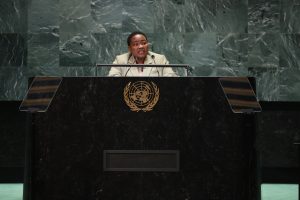
Robinah Nabbanja, the Prime Minister of Uganda while presenting the statement for Uganda during the 79th United Nations General Assembly in New York
“We are all aware that most conflict drivers begin as unresolved local or regional tensions/problems, which become increasingly complex sometimes involving multiple actors. Regional conflicts must be addressed comprehensively beyond security with the need for broad and strong political commitments by the regional governments,” said Museveni.
He added that Uganda believes in the peaceful resolution of conflicts wherever they occur.
“We are at the forefront of promoting regional peace, security and stability necessary for economic development. In this respect, Uganda encourages international partners to support local and regional led initiatives/solutions for building peace and stability as prerequisites for sustained and inclusive economic growth and development in our countries and regions,” Museveni emphasized.
He called for increased collaboration by the international community to eliminate or reduce the incidence of conflicts caused by factors such as inequality, climate change, pandemics, new technologies, transnational organized crime and terrorism.
“Uganda believes that the benefits of this world must be shared with all humanity and abhors all forms of exclusion by the relatively few wealth nations. We reject the increasing competition and confrontation between major powers, which undermines the collective international responses to security, peace, stability and social economic development,” the President said.
Museveni noted that financing remains one of the greatest challenges that undermine the efforts of developing countries to fully implement the 2030 Agenda for Sustainable Development and achievement of its 17 Sustainable Development Goals.
He said that borrowing is critical for financing investments in sustainable development.
Museveni argued that sovereign debt is an important tool for financing sustainable development, enabling low-income countries to invest in infrastructure, health, education, and other critical areas.
“We emphasize that loans to low-income developing countries should be concessional and at zero interest rate. This will enable our countries to finance productive investments, including building infrastructure to improve connectivity, make debt sustainable in the long-run and spur economic growth which will in turn help to improve domestic tax collection and raise revenues. Uganda, like other developing countries, faces constraints of domestic resource mobilization due to limited tax base,” he said.
The President called for strengthening international cooperation in tax matters to ensure that it is effective and inclusive by making MNCs pay taxes in countries of their operations, including collections of revenue generated by e-commerce in cross border transactions.
Museveni said “We fully support the ongoing discussions on adoption of the UN Framework Convention on International Tax Cooperation and call upon all countries to negotiate constructively. We also call for the strengthening of international cooperation in the prevention of and combating illicit financial flows with a view of ensuring that all illicit funds/resources/assets are returned to their countries of origin.”
In addition, Uganda called for the urgent reform of the international financial architecture, including the international financial institutions and their rules to ensure equitable representation of developing countries in international economic governance decision making that affect the trajectory of their national development.
On the issue of climate, the President said that Climate change remains one of the greatest challenges to the pursuit of sustainable development. Uganda calls on developed countries to provide the necessary financial, technological as well as capacity building support to developing countries to effectively address climate change.
“We demand for climate justice, recognizing that wealthier countries, having historically profited from high-emission activities for the development of their economies, bear a greater obligation to lead in mitigating these impacts. Therefore, the high-income countries should reduce their emissions and equally support developing countries in their gradual transition to low-emission development pathways, without using the environment as a political and economic tool to block or slow down their development. We emphasize that climate finance should be additional to official development assistance,” Museveni noted.
The Prime Minister was accompanied by the Foreign Affairs Minister Jjeje Odong, Nobert Mao, the Minister for Justice and Constitutional Affairs, Betty Amongi, the Minister for Gender, Labour and Social Development, Dr. Jane Ruth Aceng, the Minister for Health, Okello Oryem, State Minister for Foreign Affairs, Bwino Kyakulaga, State Minister for Agriculture, Rebecca Otengo, Uganda’s Ambassador to Ethiopia and Uganda’s Permanent Representative at the UN Ambassador Adonia Ayebare.
End
